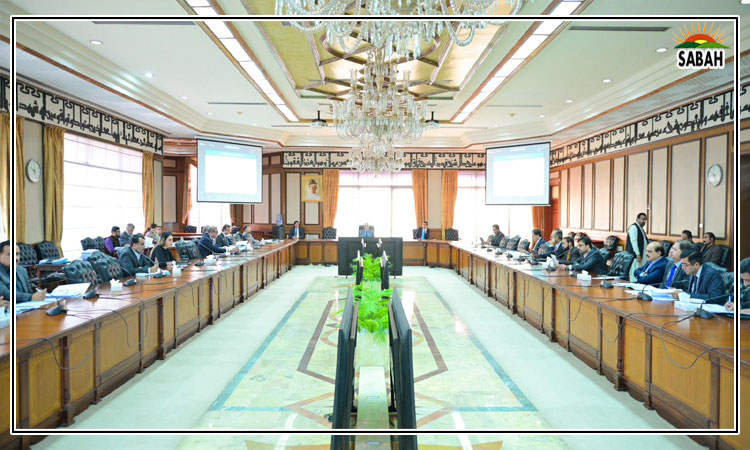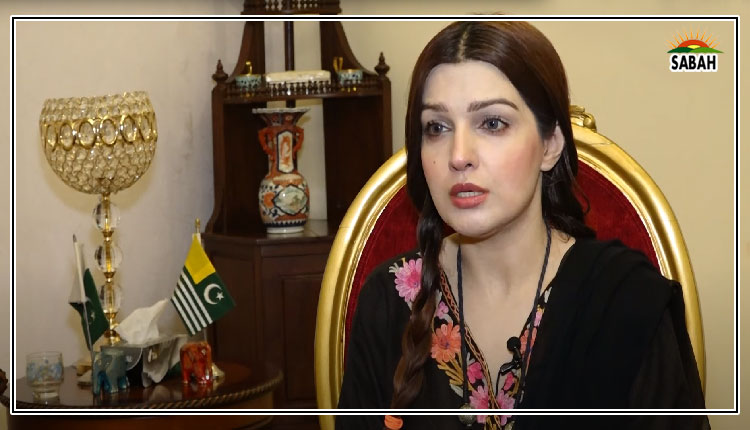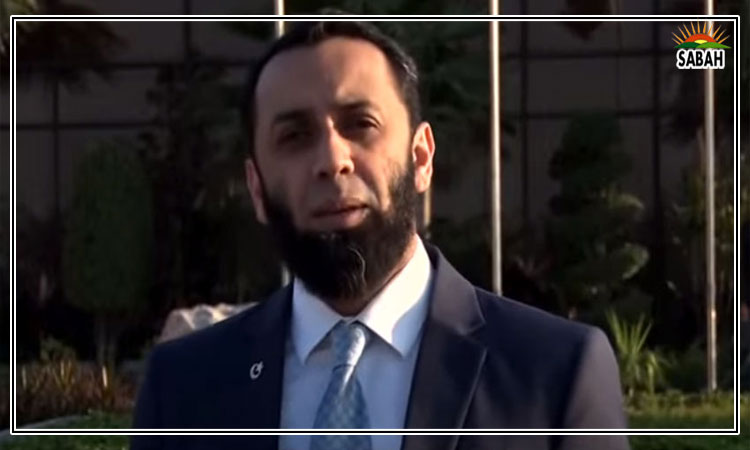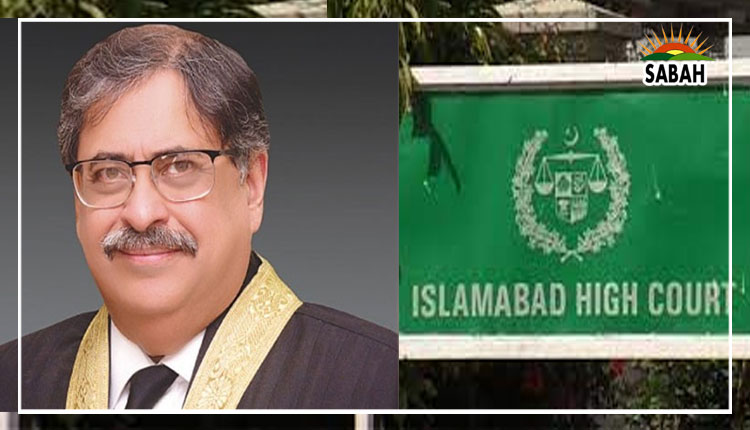CJ IHC Athar Minallah throws out contempt petition against Maryam Nawaz, Shahid Khaqan for ‘scandalising’ ex-CJP Saqib Nisar
ISLAMABAD, Nov 26 (SABAH): Chief Justice Islamabad High Court (IHC) Justice Athar Minallah on Friday dismissed the petition seeking contempt of court proceedings against former prime minister and Senior Vice President of Pakistan Muslim League-Nawaz (PML-N) Shahid Khaqan Abbasi and PML-N Vice President Maryam Nawaz Sharif for addressing a press conference against former chief justice of Pakistan Justice (retd) Mian Saqib Nisar while declaring it inadmissible.
Earlier on Friday, IHC Chief Justice Athar Minallah had reserved the judgment on the matter.
The petitioner Kulsoom Khaliq Advocate appears to be offended by criticism of the former chief justice, the court observed in the detailed order later issued. “Criticism of the former chief justice does not fall under contempt of court,” it added.
The written verdict stated that the contempt of court law was not for the protection of judges but for the protection of parties to the case.
“A judges’ job is to provide justice, and judges are not immune from public criticism,” the verdict stated. “An independent judge is never affected by criticism.”
The verdict further stated that contempt of court proceedings were conducted exclusively in the public interest.
“A judge becomes a private person after retirement,” it stated. “After retirement, the judge does not remain part of any court. Contempt of court does not constitute defamation of a private person.”
The verdict added that there were other provisions in the law to protect the honour of private persons.
“The former chief justice has been criticised in his personal capacity,” it said. “Personal criticism cannot be prosecuted for contempt.
Chief justice further said that as a private citizen, “it remains open to a retired judicial officer to seek remedies available in a court of law. However, the offence of contempt is not attracted in the case of a retired judge because after retirement the latter attains the status of a private citizen.”
The court said judges were entrusted with an “onerous duty to serve the people through the fountain of justice and they are not immune from public scrutiny nor criticism”.
“An independent judge would not be influenced nor affected in any other manner because of public criticism,” he continued.
The IHC chief justice explained that the exercise of the power of contempt would be justified only if it was in the public interest.
“In the case in hand, the petitioner seems to be hurt because a former Chief Justice of Pakistan has been publicly criticised in his individual capacity. This definitely does not attract the offence of contempt,” the order read.
The court said that in the case in hand, the petitioner seems to be hurt because a former chief justice of Pakistan has been publicly criticized in his individual capacity, this definitely dose not attract the offense of contempt. The court in the verdict said that for the above reasons, the application is not maintainable and, therefore, according dismissed.”
According to the judgment the petition was filed under Article 204 of the constitution of the Islamic Republic of Pakistan, 1973, read with sections 3 and 4 of the Contempt of Court Ordinance, 2003.
During the proceedings earlier, CJP IHC Athar Minallah stated that a retired official, even if a former chief justice, was not above criticism.
The petitioner maintained that what was said in the press conference against former CJP Mian Saqib Nisar was tantamount to committing contempt of court.
“A person directly affected by the matter can file a defamation suit themselves,” Justice Minallah had remarked during the hearing.
The petitioner further stated that the matter of issuing a show-cause notice to journalist Ansar Abbasi was also pending before the court.
“That is a separate case and should not be associated with this application,” Justice Minallah asserted. “The first thing is that judges are open-minded about criticism. Judges hold a very high position and criticism should be welcomed.”












